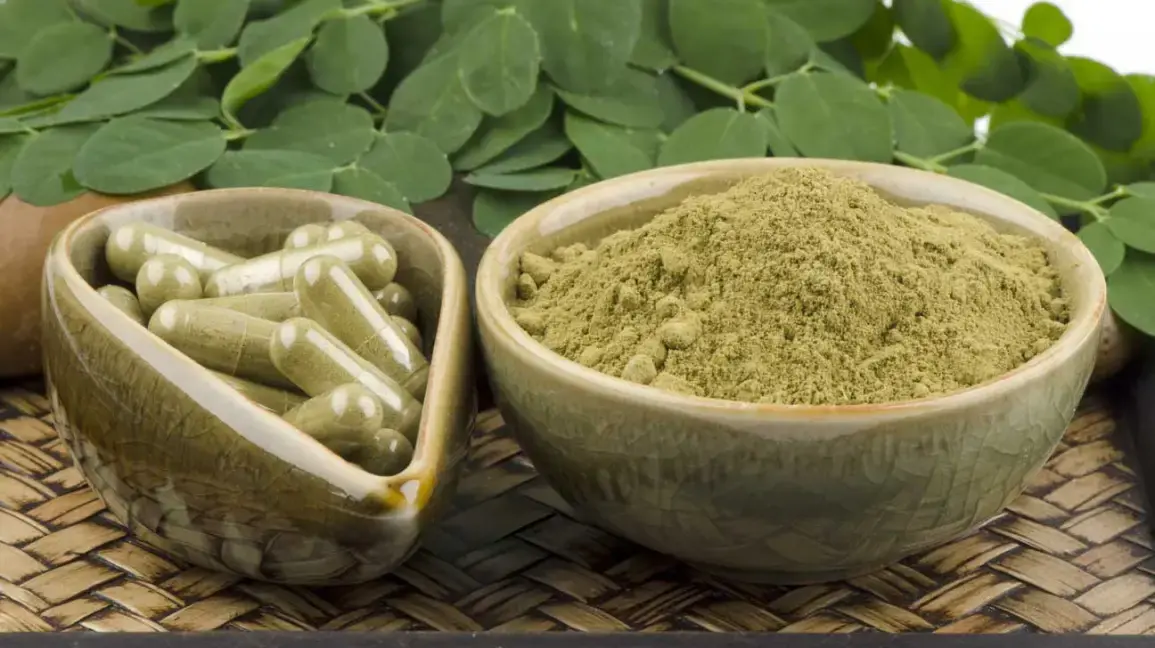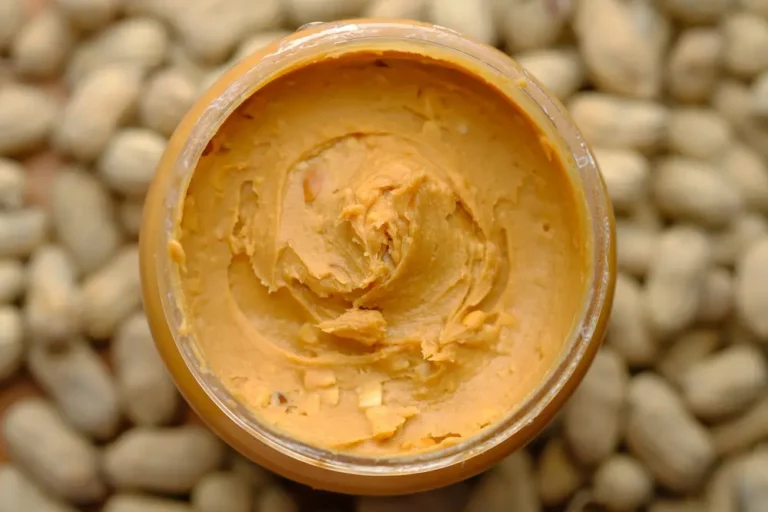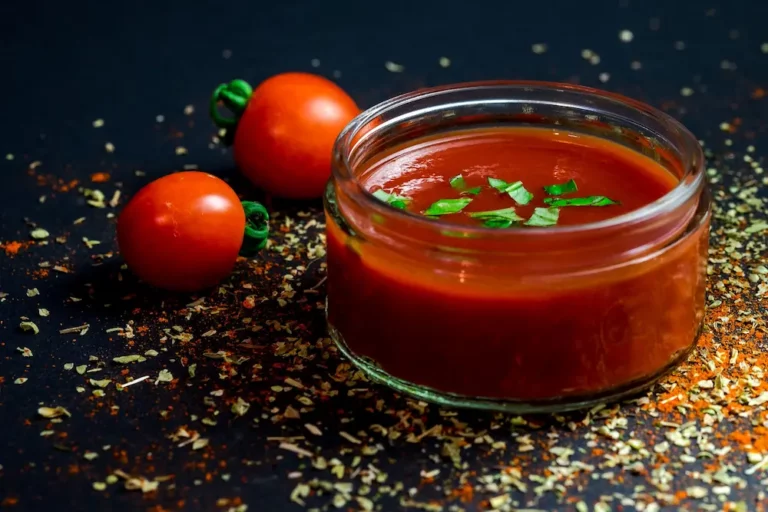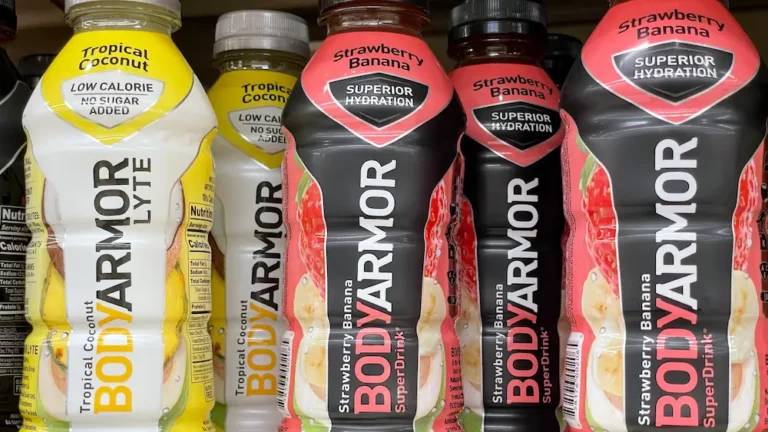What Does Moringa Taste Like? A Friendly Guide to This Nutritious Superfood
Are you curious about what moringa tastes like? Moringa is a tree that is native to India and is known for its numerous health benefits. It is packed with nutrients and is used in various forms, including powder, capsules, and tea. But what about the taste?
According to those who have tried it, moringa has a unique taste that can be described as a mix of matcha, spirulina, and algae. It has an earthy flavor with a slight bitterness to it. However, it is not difficult to consume and can be easily incorporated into your daily diet. In this article, we will explore the taste of moringa in detail and provide you with all the information you need to know.
Understanding Moringa
Moringa is a plant that is commonly known as the drumstick tree, miracle tree, or ben oil tree. It is a tropical plant that is native to India, but it is now grown in many other parts of the world. The plant is highly valued for its leaves, pods, and seeds, which are all edible and have many health benefits.
Moringa leaves have a slightly bitter taste with a hint of sweetness, similar to spinach or arugula. The leaves can be eaten raw or cooked, and they are often used to make tea or added to soups and stews. When cooked, the bitterness of the leaves is reduced, and they become more palatable.
The pods of the moringa plant are long and slender, and they have a slightly sweet taste. They are often used in Indian cuisine and can be cooked in a variety of ways, including stir-frying, boiling, or steaming.
The seeds of the moringa plant are also edible and have a nutty flavor, and you can learn how to germinate moringa easily. They can be roasted and eaten as a snack, or they can be pressed to extract oil, which is used for cooking and as a cosmetic ingredient.
Moringa is often referred to as a superfood because it is packed with nutrients. It is high in vitamins A, C, and E, as well as calcium, potassium, and protein. The plant also contains antioxidants, which can help protect your cells from damage caused by free radicals.
Overall, moringa has a unique taste that may take some getting used to. However, its health benefits make it a valuable addition to any diet.
The Taste Profile of Moringa
If you are wondering what moringa tastes like, you are not alone. The taste of moringa can be described as unique, with a mild and earthy flavor. Some people compare it to green tea or spinach, while others describe it as having grass-like undertones.
Moringa leaves have a slightly bitter taste with a hint of sweetness, similar to arugula or kale. Both the leaves and pods can be eaten raw or cooked, but they have a different taste profile. Moringa leaves have a delicate flavor and lose their bitterness when cooked.
Moringa powder has a green, spinachy flavor, which is often compared to the taste of matcha. Unlike other green superfoods like spirulina and chlorella, moringa is not an algae, so it doesn’t have a strong, overpowering flavor and is easy to incorporate into your daily diet.
Overall, the taste of moringa is not overpowering, making it easy to add to smoothies, salads, and other dishes. It has a slightly bitter and earthy taste, with a hint of sweetness and sharpness.
Moringa in Different Forms
Moringa is a versatile plant that can be consumed in various forms. Each form has its unique taste and nutritional benefits. Here are some common forms of moringa and what they taste like:
Leaves
Moringa leaves have a mild, earthy taste with a slightly bitter aftertaste. They are commonly used in salads, soups, and stews. You can also make a moringa tea by steeping the leaves in hot water. The tea has a pleasant, herbal taste.
Powder
Moringa powder is made by grinding dried moringa leaves into a fine powder. It has a strong, earthy taste and is often added to smoothies, juices, and other drinks. You can also sprinkle it on top of your food for added nutrition. You can easily learn how to make moringa powder by yourself.
Capsules
Moringa capsules are a convenient way to consume moringa. They are tasteless and easy to swallow. However, they may not be as effective as other forms of moringa since they are often made with lower-quality moringa powder.
Seeds
Moringa seeds have a nutty, slightly sweet taste. They can be roasted and eaten as a snack or used to make oil. Moringa oil has a mild, nutty flavor and is often used in cooking and skincare products.
Pods
Moringa pods, also known as drumsticks, have a slightly sweet taste and a crunchy texture. They are often used in Indian cuisine and can be cooked in curries, stews, and soups.
Liquid Extract
Moringa liquid extract is made by soaking moringa leaves in alcohol or water. It has a strong, bitter taste and is often used as a dietary supplement.
Edible Flowers
Moringa flowers have a mushroom-like taste and are rich in amino acids, calcium, and potassium. They can be cooked, fried, or steeped to make tea.
Roots and Bark
Moringa roots and bark are not commonly consumed since they contain toxic compounds. They are often used in traditional medicine for their medicinal properties.
In summary, moringa can be consumed in various forms, each with its unique taste and nutritional benefits. Whether you prefer leaves, powder, capsules, seeds, pods, liquid extract, or edible flowers, there is a moringa product for everyone.
Nutritional Value of Moringa
Moringa is considered a superfood because of its impressive nutritional profile. It is rich in vitamins, minerals, protein, and antioxidants. Here are some of the key nutrients found in moringa:
- Vitamins: Moringa is an excellent source of vitamins A and C. Vitamin A is important for maintaining healthy vision, while vitamin C is a powerful antioxidant that boosts the immune system and helps the body absorb iron.
- Minerals: Moringa is a good source of calcium, iron, and potassium. Calcium is essential for strong bones and teeth, while iron is needed to make hemoglobin, the protein that carries oxygen in the blood. Potassium helps regulate blood pressure and supports heart health.
- Protein: Moringa is a complete protein, meaning it contains all nine essential amino acids that the body cannot produce on its own. Protein is important for building and repairing tissues, as well as supporting immune function.
- Fiber: Moringa is high in fiber, which helps regulate digestion and promote feelings of fullness.
- Antioxidants: Moringa contains several powerful antioxidants, including beta-carotene, quercetin, and chlorogenic acid. Antioxidants help protect the body from damage caused by free radicals, which can contribute to chronic diseases like cancer and heart disease.
In addition to these nutrients, moringa also contains other beneficial compounds like zeatin, a plant hormone that supports healthy aging, and kaempferol, a flavonoid that may have anti-inflammatory and anti-cancer properties.
Overall, incorporating moringa into your diet can provide a wide range of health benefits. Whether you add it to smoothies, salads, or soups, this versatile superfood is a great way to boost your nutrient intake and support optimal health.
Moringa in Different Cuisines
Moringa is a versatile plant that can be used in various cuisines around the world. It has a unique taste that can complement different dishes. Here are some ways you can use moringa in different cuisines:
African Cuisine
In Africa, moringa is commonly used in soups and stews. It is usually added as a leafy green vegetable, similar to spinach or kale. Moringa leaves can also be used to make a salad. In West Africa, moringa leaves are often used to make a sauce for fish or chicken.
Asian Cuisine
Moringa is a staple in many Asian cuisines, including Indian, Thai, and Filipino. In India, moringa leaves are commonly used in curries and chutneys. Moringa pods, also known as drumsticks, are often used in soups and stews in Indian cuisine. In Thailand, moringa leaves are used in salads and stir-fries. In the Philippines, moringa leaves are used to make a soup called tinola, which is traditionally made with chicken.
Western Cuisine
Moringa is still a relatively new ingredient in Western cuisine, but it is gaining popularity. Moringa leaves can be added to salads for a nutrient boost. They can also be used as a topping for pizza or mixed into pasta dishes. Moringa powder can be added to smoothies or used as a seasoning for roasted vegetables.
Other Uses
Moringa is a versatile ingredient that can be used in many different ways. Here are some other ideas:
- Add moringa leaves to a green smoothie for an extra nutrient boost.
- Use moringa powder as a seasoning for roasted broccoli or green beans.
- Mix moringa leaves into an arugula or kale salad.
- Use moringa powder to make a rub for grilled chicken or fish.
Overall, moringa is a versatile ingredient that can be used in many different cuisines and dishes. It has a unique taste that can complement a variety of flavors.
Health Benefits of Moringa
Moringa is a nutrient-packed food that comes from the Moringa oleifera tree in India. It is widely used in traditional medicine to treat a variety of ailments. In recent years, it has gained popularity as a dietary supplement due to its numerous health benefits. Here are some of the potential health benefits of moringa:
Anti-inflammatory properties
Moringa contains several compounds with anti-inflammatory properties, such as flavonoids and phenolic acids. These compounds may help reduce inflammation in the body, which is associated with many chronic diseases, including cancer, diabetes, and arthritis.
Anti-diabetic effects
Moringa has been shown to have anti-diabetic effects in several studies. It may help lower blood sugar levels by increasing insulin sensitivity and reducing oxidative stress. However, more research is needed to confirm these effects.
Antibacterial properties
Moringa has antibacterial properties and may help fight infections caused by bacteria. It contains compounds such as niaziminin and isothiocyanates, which have been shown to inhibit the growth of several types of bacteria.
Rich in nutrients
Moringa is a rich source of vitamins and minerals, including vitamin B2, vitamin B3, vitamin C, calcium, potassium, iron, magnesium, and phosphorus. It is also low in fat and contains no harmful cholesterol.
Other potential health benefits
Moringa may have other potential health benefits, such as:
- Reducing oxidative stress
- Improving heart health
- Boosting the immune system
- Supporting brain health
Side effects
Moringa is generally safe for most people when consumed in moderation. However, it may cause side effects in some individuals, such as nausea, diarrhea, and stomach cramps. If you experience any adverse effects, stop using moringa and consult your healthcare provider.
Overall, moringa is a nutrient-dense food with numerous potential health benefits. However, more research is needed to fully understand its effects on human health.
Comparison with Other Superfoods
If you’re wondering what moringa tastes like, you might be curious about how it compares to other superfoods. Here’s a quick rundown of how moringa stacks up against some other popular green foods:
- Matcha: Moringa has a similar earthy flavor profile to matcha, but it’s not as strong or bitter. Moringa is also easier to incorporate into your diet since it doesn’t have a strong taste like matcha does.
- Spirulina: While both moringa and spirulina are nutrient-dense, moringa has almost double the amount of essential vitamins and minerals. Moringa also has a milder taste compared to spirulina’s strong, algae-like flavor.
- Blue-Green Algae: Similar to spirulina, blue-green algae has a strong, earthy taste that can be difficult to mask. Moringa, on the other hand, has a milder taste and can be easily incorporated into smoothies, soups, and other dishes.
- Green Tea: While green tea is known for its health benefits, it has a bitter taste that not everyone enjoys. Moringa has a more palatable taste and can be a great way to add more nutrients to your diet without having to drink green tea.
- Herbal Supplements: Many herbal supplements have a strong taste that can be difficult to swallow. Moringa, however, has a milder taste that can be easily masked with other flavors.
Overall, moringa is a versatile superfood that can be used in a variety of dishes and has a mild, earthy flavor that is easy to incorporate into your diet. Whether you’re looking to add more nutrients to your smoothies or soups, or you just want to try something new, moringa is definitely worth a try.
Moringa in Beverages
If you’re looking to add some nutrition to your beverages, Moringa can be a great option. It has a unique flavor that can add some depth to your drinks, and it’s also packed with vitamins and minerals. Here are some ways you can incorporate Moringa into your beverages:
Water
If you’re looking for a simple way to add Moringa to your diet, you can simply mix it into your water. Moringa powder dissolves easily in water, and it doesn’t have a strong flavor, so it won’t overpower the taste of your water. You can start with a small amount of Moringa powder and gradually increase the amount as you get used to the taste.
Smoothies
Moringa can be a great addition to your smoothies, especially if you’re looking for a way to add some greens to your diet. You can add Moringa powder to your favorite smoothie recipe, or you can try this simple Moringa smoothie recipe:
- 1 banana
- 1 cup spinach
- 1 tsp Moringa powder
- 1 cup almond milk
- 1 tsp honey (optional)
Blend all the ingredients together until smooth, and enjoy!
Juices
Moringa can also be added to your favorite juices for an extra boost of nutrition. You can add Moringa powder to your homemade juices, or you can try this simple Moringa juice recipe:
- 1 apple
- 1 cucumber
- 1 lemon
- 1 tsp Moringa powder
- 1 cup water
Blend all the ingredients together until smooth, and strain the juice if desired. Enjoy your refreshing and nutritious Moringa juice!
Overall, Moringa can be a great addition to your beverages, and it can help you get the nutrients you need to stay healthy. Try adding Moringa to your water, smoothies, and juices, and see how it can benefit your health and wellness.
Moringa in Skincare
Moringa is not just beneficial for your health, but it can also do wonders for your skin. The high concentration of vitamins and minerals in moringa makes it a great ingredient for skincare products. Here are some of the benefits of using moringa in your skincare routine:
Hydrates and nourishes
Moringa oil is rich in fatty acids that can help hydrate and nourish your skin. It can penetrate deep into your skin and provide long-lasting moisture. Moringa oil is also lightweight and non-greasy, making it an ideal ingredient for people with oily or acne-prone skin.
Anti-aging properties
Moringa is packed with antioxidants that can help fight free radicals and prevent premature aging. It can also boost collagen production, which can help improve the elasticity and firmness of your skin. Regular use of moringa-based skincare products can help reduce the appearance of fine lines and wrinkles.
Soothes inflammation
Moringa has anti-inflammatory properties that can help soothe irritated or inflamed skin. It can also help reduce redness and swelling caused by acne or other skin conditions. Moringa-based skincare products can be especially beneficial for people with sensitive or reactive skin.
Improves skin tone
Moringa can help even out your skin tone and improve its overall appearance. It can help reduce the appearance of dark spots, hyperpigmentation, and other discoloration. Regular use of moringa-based skincare products can help brighten and rejuvenate your skin.
Overall, incorporating moringa into your skincare routine can provide a wide range of benefits for your skin. Whether you have dry, oily, or sensitive skin, there is a moringa-based skincare product that can work for you.
Additional Information
If you’re interested in trying moringa, there are a few things you should know. First, fresh moringa leaves have a slightly bitter taste with a hint of sweetness, similar to spinach or arugula. Both the leaves and pods can be eaten raw or cooked but have a different taste profile. Moringa leaves have a delicate flavor and lose their bitterness when cooked.
In terms of nutritional value, moringa is packed with vitamins and minerals. According to Healthline, one cup of fresh, chopped leaves (21 grams) contains:
- Protein: 2 grams
- Vitamin B6: 19% of the RDA
- Vitamin C: 12% of the RDA
- Iron: 11% of the RDA
- Riboflavin (B2): 11% of the RDA
- Vitamin A (from beta-carotene): 9% of the RDA
- Magnesium: 8% of the RDA
Moringa is also a good source of antioxidants, which can help protect your cells from damage caused by free radicals.
If you’re looking for ways to incorporate moringa into your diet, there are plenty of options. You can add moringa powder to smoothies, oatmeal, or yogurt for a boost of nutrients. You can also use it as a seasoning for soups, stews, and sauces.
One brand of moringa products that comes highly recommended is Aduna. Aduna offers a range of moringa products, including powder, tea, and energy bars. Their products are organic, vegan, and ethically sourced, so you can feel good about what you’re putting in your body.
Frequently Asked Questions
What are some benefits of consuming moringa?
Moringa is known to be a nutrient-dense plant that is packed with vitamins and minerals, making it a great addition to your diet. It contains high levels of vitamin C, vitamin A, and potassium, as well as calcium, iron, and protein. Additionally, moringa has been shown to have anti-inflammatory and antioxidant properties, which can help reduce inflammation and protect against free radical damage.
What are the potential side effects of moringa powder?
While moringa is generally considered safe for consumption, there are some potential side effects to be aware of. Consuming large amounts of moringa powder may cause digestive issues such as diarrhea or nausea. Additionally, moringa may interact with certain medications, so it’s important to talk to your doctor before adding it to your diet.
How can moringa seeds be used in cooking?
Moringa seeds can be used in a variety of ways in cooking. They can be roasted and eaten as a snack, or ground into a powder and used as a seasoning. Moringa seeds can also be used to make oil, which can be used in cooking or as a moisturizer for the skin.
Does moringa taste bitter?
Moringa has a slightly bitter taste, but it is not overpowering. Many people describe the taste as similar to spinach or watercress. Moringa powder can be easily added to smoothies or other recipes to help mask any bitterness.
Is it safe to consume moringa powder daily?
Moringa powder is generally considered safe for daily consumption, but it’s important to remember that moderation is key. Consuming large amounts of moringa powder may cause digestive issues or interact with certain medications, so it’s important to talk to your doctor before adding it to your daily routine.
What are some effects of consuming moringa?
Consuming moringa may have a variety of effects on the body. It has been shown to help reduce inflammation, improve digestion, and boost the immune system. Additionally, moringa has been linked to improved heart health and may help lower cholesterol levels.







